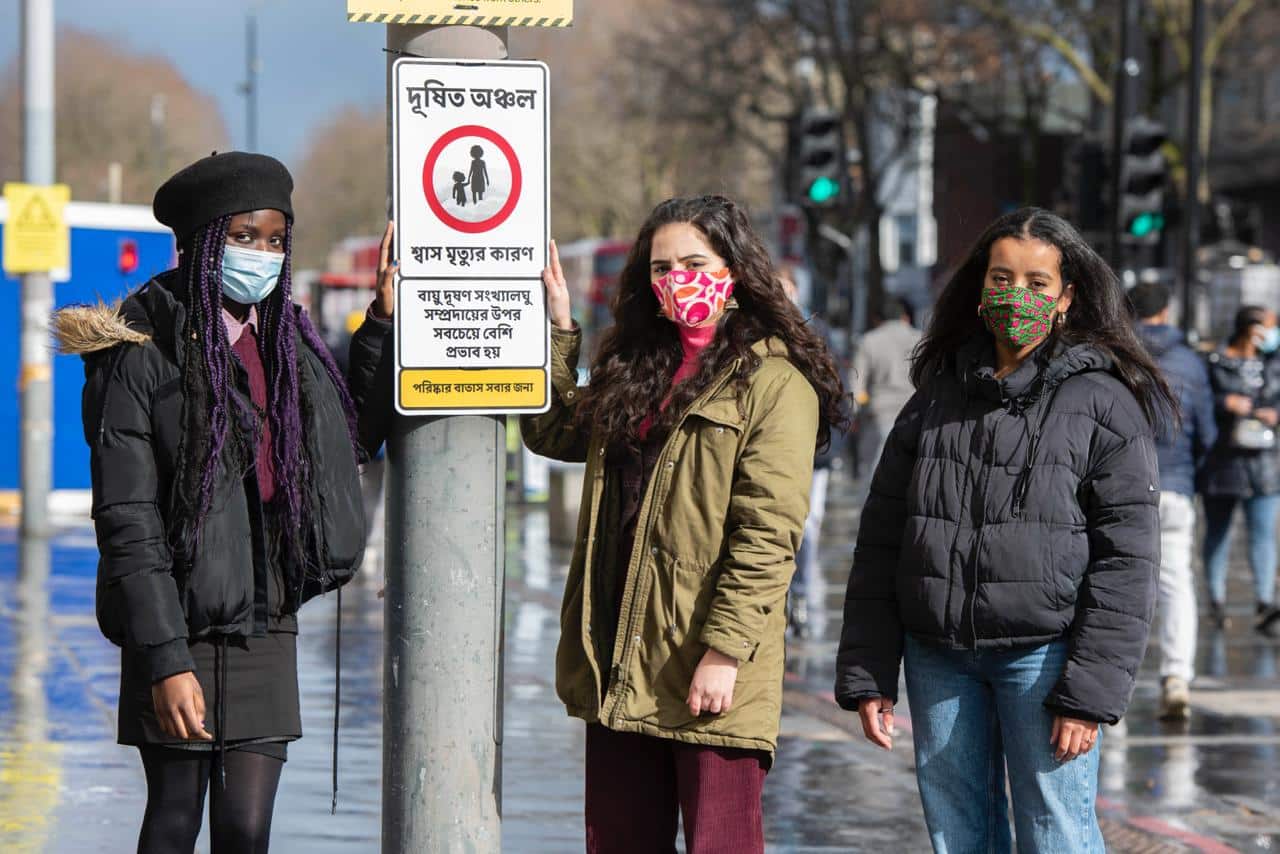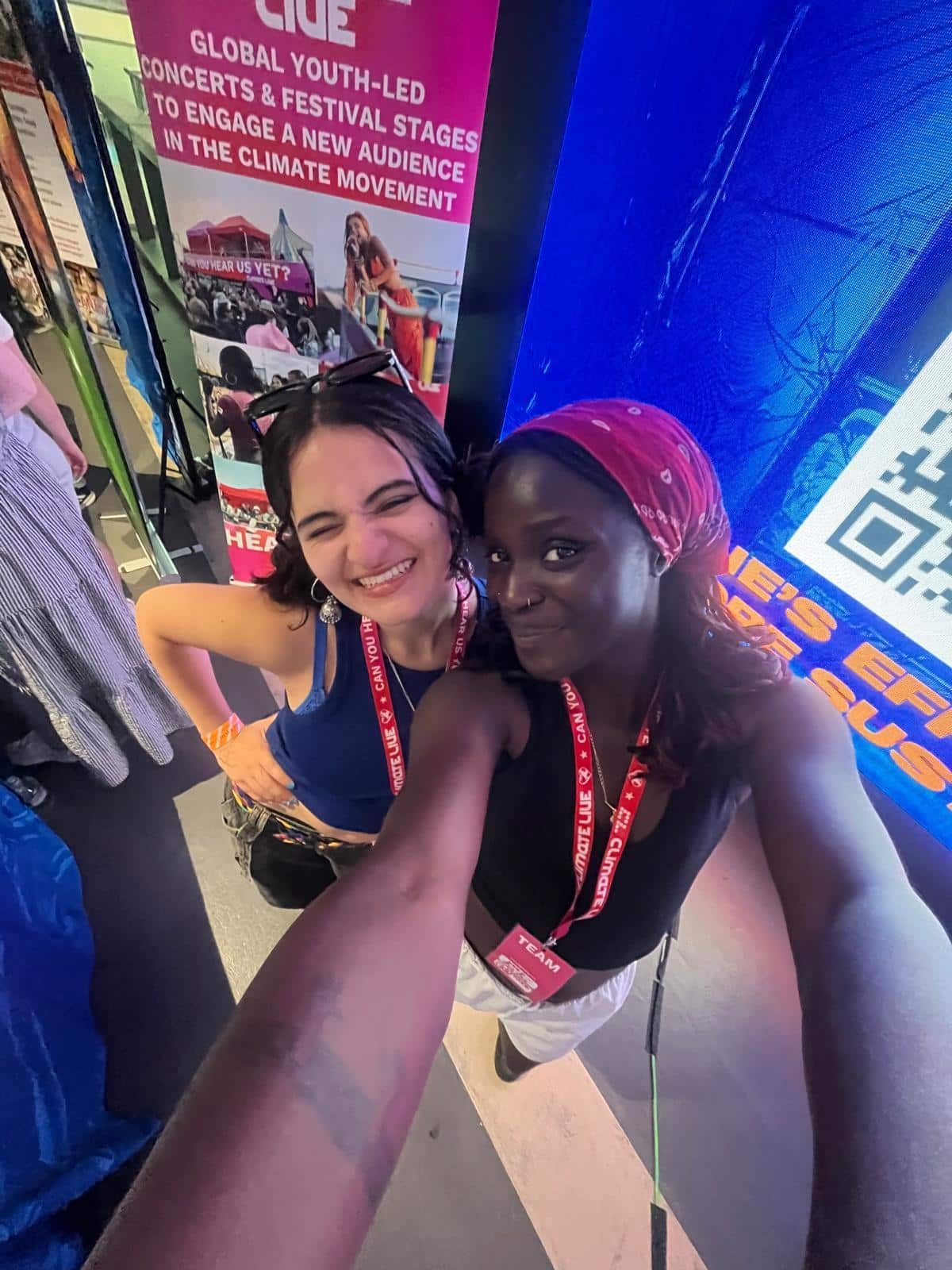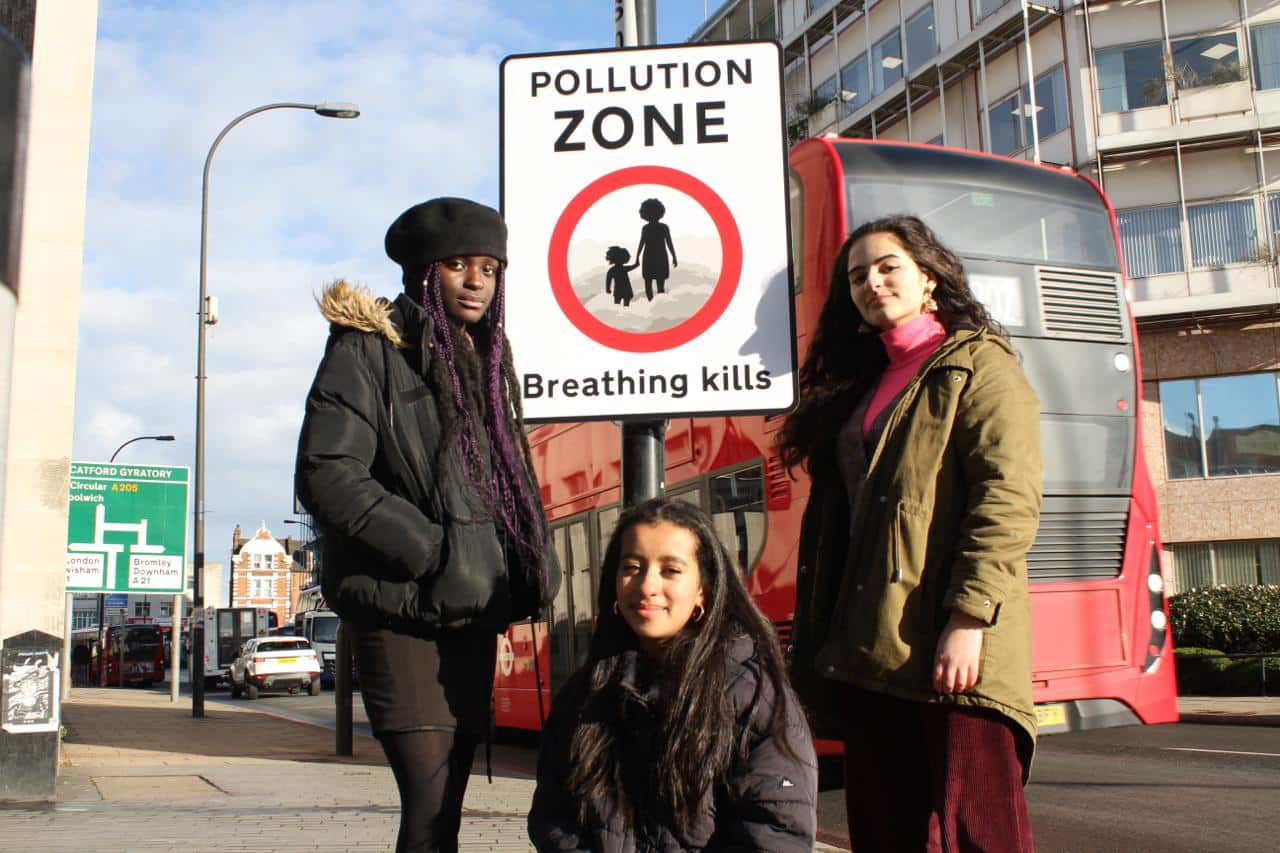Choked Up is a youth-led campaign fighting for clean air, and for the right of all communities to breathe safely. Founded by Anjali and Beau, young activists from London, the group is pushing for cleaner air legislation, greater public awareness, and a political response that recognises how air pollution disproportionately affects marginalised communities.
“The change we’re trying to see in the world obviously relates to clean air,” says Beau. “We want the UK government to adapt to 21st-century issues and towards issues that affect people who look like us, who’ve grown up in surroundings like ours.”

Earlier this year, Choked Up joined activists and students in Birmingham to hand-deliver a letter to Mayor Richard Parker demanding urgent action on toxic air. The campaign led to the rollout of new pollution monitoring systems across the region. They’ve also taken their message internationally: in 2025, Beau attended a Paris roundtable on climate justice, discussing ecocide, river rights, and the role of storytelling in activism.
Alongside this, Choked Up continues to use art and culture moments as tools for outreach, from speaking at Oxford’s “Planet Art” event, to joining a closing panel at the Hayward Gallery’s Dear Earth exhibition.
“With our work we’re looking to make policy that uplifts the communities most affected, alongside actually platforming and empowering those communities to make change for themselves, be vocal about what they want, and also just know about this issue. So many people living in polluted areas don’t even know about the air they’re breathing.” Anjali says.
They started out doing this by running campaigns and creating moments of media engagement, including their Mayor for Clean Air campaign, where they put up hacked road signs across high pollution and ethnically diverse areas in London.
Now, with a Labour Government in place, they’re pivoting strategy. “We’re moving more towards a policy angle now and working directly with politicians, mainly with the Mayor’s office at the minute.
Both founders came to this work through personal experiences.
Anjali went to school with Ella Kissi-Debrah, a nine-year-old girl whose death from air pollution became a national rallying cry. “Seeing the injustice Ella and her family faced made me know I had to do something and that I couldn’t stay silent. I didn’t want anyone else in my community to suffer the same fate.”
Similarly, Beau grew up with family members who have asthma and chronic illness, which are made worse by air pollution. “For me, it was mainly about driving a conversation around the fact that we’re having to just endure this, and that we shouldn’t accept this sense of mediocrity that’s sort of been handed to us.”
Choked Up joined the Pathways Fund after three years of campaigning, eager to strengthen their strategy and refine their direction. “We’d come off Challenge and Change and had already managed to establish ourselves,” Anjali says. “The Pathways Fund has been about strengthening that, making sure we had more direction and really honing the skills we’d developed to be more, precise, more useful, and more professional.”
That growth has been on a personal level too. “The idea of growth has definitely changed since being on the programme,” Beau reflects. “We’re maturing as campaigners. Just developing our skill set and making sure we’re more, I guess… polished.”
The Pathways Fund gave them space to think more critically about the balance between policy and community organising. “Seeing the work the other Pathways Fund partners are doing hasmade me rethink how we engage,” says Anjali. “There’s still so much value in deepening our community roots alongside doing policy work.”

The support has also made the work more sustainable. “Before receiving any grants, we were essentially just working for free,” Beau explains. “That comes with a lot of implications, especially when you’ve also got commitments like education or jobs. The grants made our work more accessible. We could actually do it alongside our degrees.”
Both Beau and Anjali say the Wellbeing Grants and Organisational Development Budget helped them grow not just as campaigners, but as people. “It’s support that goes beyond the campaign — into how we’re able to sustain ourselves as people doing the work,” Angelie says.
Still, barriers remain. In policy spaces, Anjali says, “It’s still hard to be taken seriously as a young person. We’re not experts on air pollution. We’re speaking from lived experience, and that can get dismissed.”
Beau adds that being the only people of colour in the room can be exhausting: “That act alone, even though we’re breaking barriers and doing revolutionary things, it does get tiring. We shouldn’t have to feel like we’re the only ones talking about these issues.”

Beau agrees. “Over the past few years, especially around elections, we’ve seen people scapegoating ULEZ or clean air as some weird political ploy to push a certain agenda. And it’s just not helpful to the work we’re doing — because all we talk about is clean air, and how personal and sensitive it is to us.”
They’re not letting these barriers slow their momentum. With support from the Pathways Fund, Choked Up has been able to grow — not just in impact, but in infrastructure. They’ve recently hired a Local Groups Coordinator to help develop grassroots chapters across the UK and bring even more people into the clean air movement.
“There’s a lot we’ve now been able to do because we have the money to do it — things we just couldn’t have done before,” Anjali reflects. “And it’s really nice that our team doesn’t just have to be volunteers anymore. We’re able to pay people for the work they do.”
That kind of support, they say, should be the norm, not the exception. For funders, the message is clear:
“Be sympathetic, and be patient,” Anjali says. “Actually take the time to understand where campaigners are coming from and the positions they’re in. Young people have so much going on — and this usually isn’t their full-time job. It’s something they’ve developed out of passion, and that should be supported.”
Beau agrees — and says that care and flexibility matter more than ever.
“Please keep listening to young people. We have very specific needs that most people won’t — especially in the digital age, where everything is so much more overwhelming than it should be.
We’re not really afforded the time to switch off, and that comes with its own complications. A lot of us have hidden disabilities or chronic illnesses, especially post-pandemic. That’s not going away — it’s just the new reality we’re faced with. It’s important that funders stay flexible, and create spaces where young people feel safe enough to share what they need.”